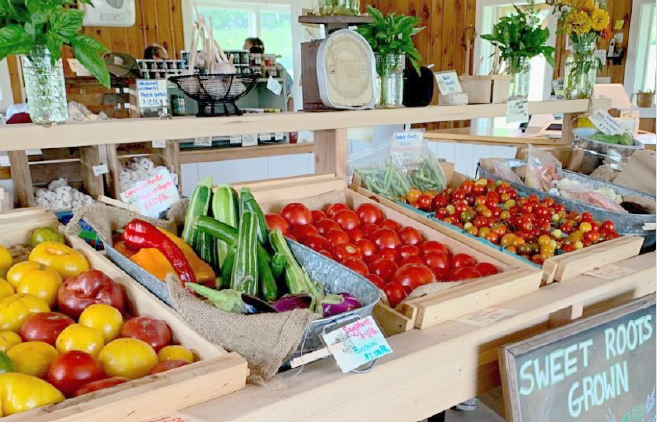Let legislators know how you feel about Farm Bill
The Farm Bill is a massive omnibus bill which sets policy and funding levels for a wide range of programs under the U.S. Department of Agriculture.

In 1933, the first program sought to help farmers during the Great Depression by paying them subsidies to reduce production of certain commercial crops, with the aim of raising crop prices in general. Over time many more issues have been recognized, so the scope has expanded to include not only production agriculture, but also soil conservation, crop insurance, wetland and forest protections, nutrition assistance and more, including the first steps toward addressing climate change.
The U.S. Department of Agriculture’s five-year review and re-authorization is underway right now. Given the complexity of the bill, it is tempting to sit back and simply trust that our congressional representatives will work for a package which addresses Vermont’s needs and opportunities. The stakes are high — the 2018 Farm Bill was authorized with a budget of $867.2 billion.
Fortunately, many public-interest groups work to understand and inform both the public and lawmakers about the ramifications of these policy and funding decisions from the perspective of impacts on the well-being and resilience of people, communities and the ecological systems we depend on. Their lobbying on our behalf provides an alternative to the entrenched, but false, concept that what’s good for large corporations is good for everyone.
A core component, which will likely continue. is a competitive grants program which seeks to advance science and its application in six areas:
Agriculture economics and rural communities
- Agriculture systems and technology
- Animal health and production and animal products
- Bio-energy, natural resources and environment
- Food safety, nutrition and health
- Plant health, production and plant products.
That sounds reasonably good, until you evaluate what has for many years been promoted and what has been suppressed in those categories.
Reputable public advocacy groups — National Sustainable Agriculture Coalition, Northeast Organic Farming Association, Union of Concerned Scientists and the Conservation Law Foundation, to name only a few — point out how the last 50 years of U.S. Department of Agriculture policies have enabled a handful of large agribusinesses to dominate almost every aspect of the production and processing of our food. This concentration of influence makes our national food system inherently unstable, and it is certainly unfair to farmers, consumers and communities.
While maximum profits are gleaned by the influential multinational corporations, the prices farmers must pay for equipment, seeds and other inputs inflates, commodity prices are driven down, and the ability of farmers and ranchers to compete in the marketplace is restricted to the point where today they receive on average less than 15 cents of every dollar that consumers spend on food.
The bill’s farm safety net’s goal was to provide farmers some degree of protection against unpredictable disasters or sudden price declines, so they can stay in business. However, by making crop insurance an open-ended subsidy program only for larger operations and particular crops, it has encouraged land price inflation, soil-depleting farming practices, farm consolidation and declining farming opportunities while leaving medium-sized and small farms on their own to face challenges.
Consumers today seem to be offered many products, but few real choices, in terms of healthy food. Sadly, the priority of processed food means healthy profits for the corporations, and not healthy people, animals or the environment.
Farming communities are subject to outside business forces they have little or no control over, which deplete their livelihoods and natural resources. Food deserts, where access to healthy food is very limited, have become common in both rural and urban communities.
It’s not a good situation. And it does not position us well to take care of ourselves as weather changes.
Even if we seek out regionally grown food or grow some of our own, most of us regularly shop at supermarkets. We rarely stop to think about what was involved in bringing those products to the shelf. There are very large systems of production, handling, processing, transporting, pricing and marketing behind almost everything available in a supermarket, because almost everything in a store today is the product of industrialized agriculture, thanks in large part to U.S. Department of Agriculture policy.
So, there is a lot at stake for all of us because of the Farm Bill’s tremendous influence on farming livelihoods, how food is grown and what kinds of food are available. Shouldn’t we insist that the investment of so much taxpayer money results in healthy food, healthy farms and food-secure communities?
A key shift is needed to level the playing field for small and medium-sized farms so local food is more available and our overall food systems can be more resilient and equitable. This shift can start with supporting beginning and diverse farmers’ access to land and capital; fixing the flawed safety net system; improving access to it for small- and medium-sized farms; addressing corporate consolidation through antitrust laws; and restoring fair competition.
There are revisions proposed which would shift the Farm Bill agenda in this healthier direction. But not surprisingly, entrenched and powerful interests are pushing back hard against them.
If you care about these issues, Sens. Welch and Sanders and Rep. Balint need to hear from you. Their telephone numbers are: - Senator Peter Welch: 800-642-3193 or 202-224-4242
- Senator Bernie Sanders: 800-339-9834 or 202-224-5141
- Representative Becca Balint: 802-652-2450 or 202-225-4115.

